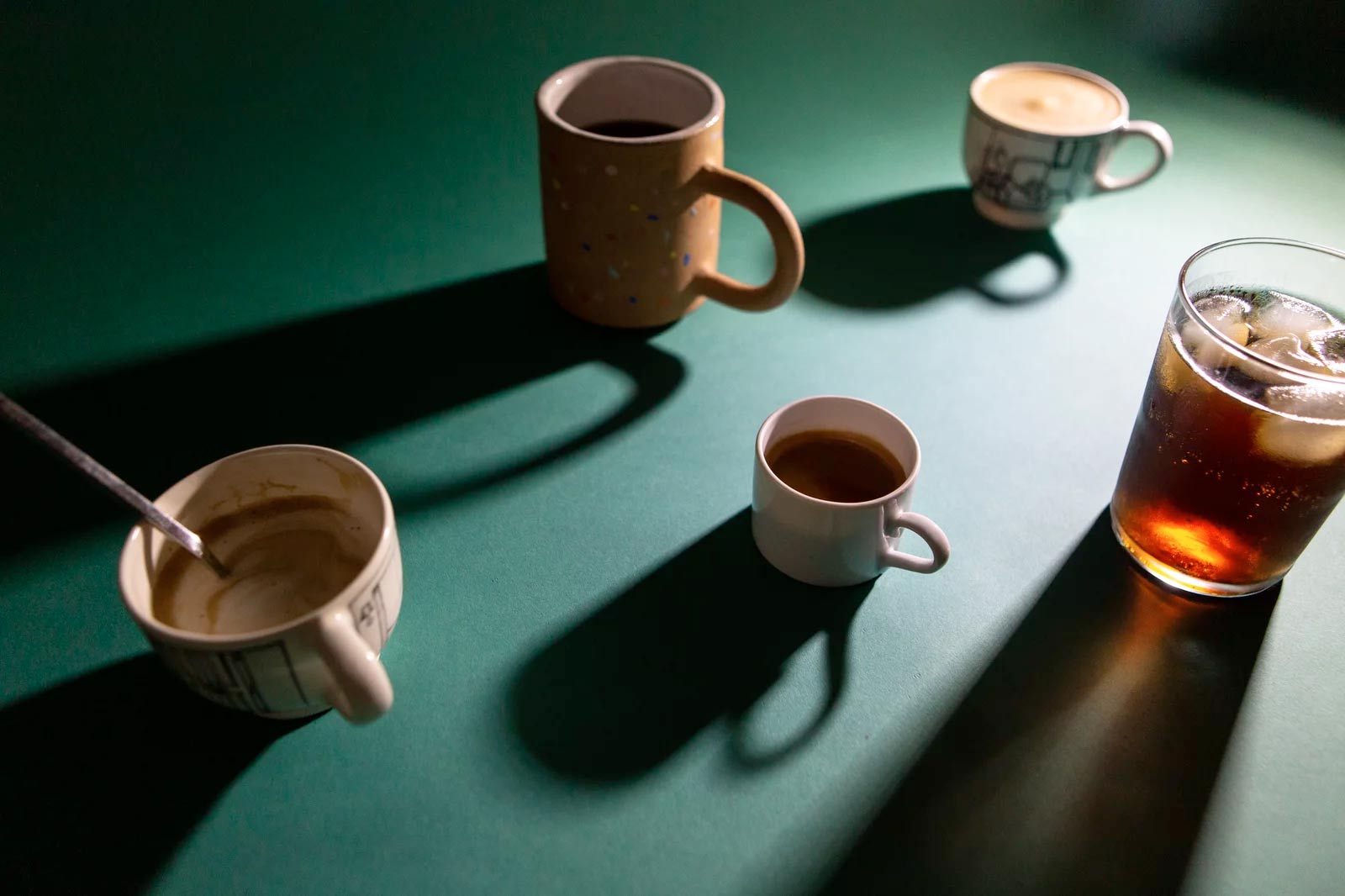 VIEW LARGER
VIEW LARGER In the U.S., a 2022 survey reported that 93% of Americans consume caffeine. Of those, 75% consume caffeine at least once a day. But is all that morning joe healthy?
The truth, for most people, is that when consumed responsibly, caffeine can offer health benefits. Coffee, for example, has been associated with everything from protecting your liver from cirrhosis to reducing the risk for Parkinson's Disease and Type 2 diabetes.
But to reap the potential rewards of caffeine consumption, you have to understand what a healthy relationship with caffeine looks like.
Here are a few things to keep in mind:
Caffeine is not a substitute for rest or nutrition
Product marketing has equated caffeine consumption with energy. And caffeine can do plenty of energy-like things for you – like making you more alert or focused and improving mood or cognitive performance.
However, these effects are not the same as providing energy to your body: only food and rest can do that.
"Caffeine can never make up for a poor night's sleep. The only thing that can make up for a poor night's sleep is more sleep," says Dr. Ugonna Iroku, a gastroenterologist in New York City and an assistant clinical professor at Icahn School of Medicine at Mount Sinai.
Yet far too often, says Iroku, people try to use caffeine as a substitute for adequate rest and nutrition and develop bad habits like drinking soda at dinner, which can keep people up past their preferred bedtime.
So, a friendly reminder: that energy drink might help get you through your afternoon hump – but caffeine can only block that tired feeling for a while.
 VIEW LARGER
VIEW LARGER Caffeine is not one-size-fits-all. Learn what works for you
Have you ever been flabbergasted by that friend who goes for coffee at 10 p.m.? Or get jealous of that coworker who only needs a little tea to power through their workday?
Marilyn Cornelis says we have our genetics to thank for habits like these. Cornelis is an associate professor in the Department of Preventive Medicine at Northwestern University Feinberg School of Medicine, with a special research interest in coffee and caffeine health.
For her postdoctoral work, Cornelis studied the relationship between the human genome and our coffee and caffeine consumption – and what she found was that appetite and tolerance for caffeine are written in our genetic code.
"If an individual was genetically predisposed to metabolize caffeine very quickly, we found that they tended to consume more caffeine," she says.
And what's more, Cornelis says that your body often already knows what it needs and will signal it to you. "You're naturally trying to titrate the levels of intake based on your genetics. Any avid coffee drinker, they know when to cut off and what's the latest they can have a cup of coffee before it impacts their sleep."
That means the effects of caffeine can vary from person to person, but that's not a blank check to take down as much as you want.
When it comes to your level of caffeine intake, Iroku says to look for signs you might be overdoing it. "Your body can give you feedback," he says. "Jitteriness, anxiety, a raised pulse [are signs] you're consuming too much."
Caffeine is not considered an addictive substance
It's common to think about your "need" for your morning coffee or tea as an addiction, but experts say the potential risks associated with caffeine dependence don't rise to the level of an addictive substance.
You can, however, build up a physical tolerance to, or dependence on, caffeine. If that happens, you'll need to keep ingesting more to get the same kick, and without it, you might experience withdrawal symptoms. And it's also possible to misuse caffeine – just like any other drug – by consuming inappropriate levels.
And there are specific populations who should consume far less or abstain entirely, like children and teenagers, pregnant people and people with certain medical conditions.
If you want to cut back, go slow
As a starting point, the Food and Drug Administration suggests a maximum of 400 milligrams of caffeine a day. for the average person – that's roughly the amount of caffeine in four, 8-ounce cups of coffee.
If you feel you need to cut back or make a change, Iroku suggests doing so slowly to set yourself up for success. Quitting cold turkey can worsen withdrawal symptoms and is associated with a higher failure rate.
When cutting down or making swaps, remember that caffeine is a part of our social rituals, not just our physical routines. So, maybe you just need a fizzy drink at the movies, not a soda, or maybe you're craving quality time with friends, not the coffee you share at your monthly meetup.
At the end of the day, caffeine can be a great friend in your corner, you just have to manage your relationship. "As a society, it's almost like a contract," says Iroku. " We're using [caffeine], we benefit from it, and everyone has the individual responsibility to make sure that they're using it properly."

By submitting your comments, you hereby give AZPM the right to post your comments and potentially use them in any other form of media operated by this institution.